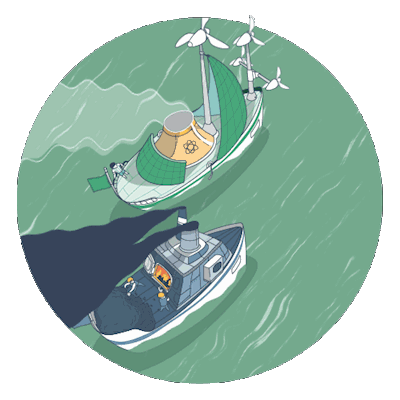You are using an outdated browser. Please upgrade your browser to improve your experience.
Article | 22 April 2022 | ESG

Last year, the world cheered the Glasgow’s COP26 summit hoping for a long-lasting legacy as countries looked to achieve the Net Zero target. And significantly, a clean energy milestone was reached to help that ambitious target. A recent report, from think tank Ember, has concluded that in 2021 solar, wind, hydro, nuclear and bioenergy produced more electricity than coal, with Europe leading the way. Certainly something to cheer about, although adding nuclear to the ‘clean energy’ category does not have global consensus. When you dive into the details you see that these ‘clean’ electricity sources generated a total of 38% of the world’s electricity last year, compared with coal-generated power of 36%. With solar and wind the fastest growing sources of clean energy, jumping 23% and 14% respectively.
And Ember's findings complement recent figures from the International Energy Agency (IEA) which indicate the clean energy transition is well and truly underway. However, in the short-term this trend may change. Coal demand began surging in 2021 as gas prices rose, an effect intensified by the devastating Russian invasion of Ukraine. And despite efforts to accelerate the transition to clean energy technologies, many countries, particularly in the EU, remain heavily dependent on Russian oil and gas. In the long term, it is hoped that this energy crisis will prompt a dramatic acceleration in decarbonisation, as the world looks for the quickest and cheapest route to greater energy independence.

While we find this milestone very encouraging, it’s important to note that coal and power emissions are still reaching record highs and coal power generation continues to present a real threat to the transition towards Net Zero. The tragic events unfolding in Ukraine in particular highlight how quickly the world’s energy system can be held to ransom. And that huge structural changes are needed to make global energy security a priority for all to counterbalance geopolitical threats.

Each month, we look at the steps Architas and the AXA Group are taking towards a better, more sustainable future for our employees, communities and the wider world.
Sustainability and ESG (environmental, social and governance) are increasingly integrated into all AXA's activities and operations. To celebrate AXA’s achievements and give a broader perspective to the teams working on ESG integration, AXA held its 1st ESG Forum. With the participation of Thomas Buberl, Ulrike Decoene, Céline Soubranne, Garance Wattez-Richard, Renaud Guidée, Pascal Christory, Jérémie Viscuso, Roslyn Stein, and two external guests, Emmanuel Faber and Bertrand Badré, who shared their vision and business practices.

At Architas we specialise in multi-manager, multi-asset investing. We work with fund managers to ensure they are investing responsibly and focusing on environmental, social and governance (ESG) issues. Since 2018 we have been signatories of the United Nations Principles for Responsible Investment. For more information about our responsible investing process please click here.